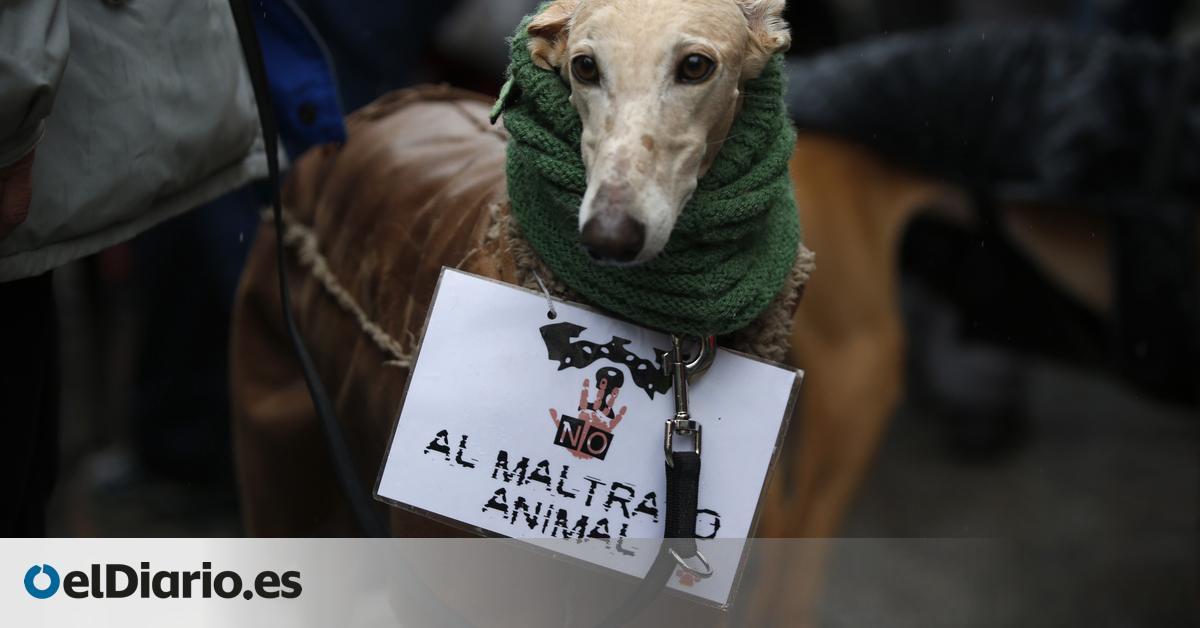
The Animal Welfare Law is currently up in the air. The vote will take place this Thursday and if nothing changes, the law could decline after the PSOE managed to approve, with the support of PP and Vox, an amendment to exclude hunting dogs from the protection of the norm that scales both United We Can as well as his usual parliamentary partners. If it does not go ahead, the Government could close a black week with the disagreement over the ‘only yes is yes’ and the defeat for the second time in the entire legislature in a vote on a project of the Council of Ministers, which is also part of the agreement of coalition.
The PSOE gets the Animal Welfare Law to go to the plenary session of Congress excluding hunting dogs
Further
With this hypothesis on the horizon, the confederal group has tried until the last minute to agree on a proposal with the Socialists to include in the text the protection of “hunting dogs, rehals and auxiliary hunting animals”. In parallel, the formation directed by Ione Belarra has intensified the pressure on his partner to reach an agreement. Last week, the Minister of Social Rights and the 2030 Agenda visited an animal shelter of the Community of Madrid. “We want to ask the PSOE from here, from a place where they know very well the consequences of animal abuse, especially some hunting dogs, to reconsider their position,” Belarra claimed from there.
New proposal a few hours before the vote
This Wednesday, almost over the deadline, the confederal group has presented a compromise amendment together with Esquerra Republicana, EH Bildu, Junts and Más País that contemplates the inclusion of these animals in the protection of the law as a way of putting pressure on the Socialists so that they understand that without the support of these groups, which right now does not count, the law does not go forward.
The conflict broke out as soon as the regulation reached Congress. There was no agreement between Unidas Podemos and the PSOE on the powers that the law should have. The socialists advocated that it regulate “exclusively” the activity of companion animals, while United We Can has not shared at any time that creatures that are not pets are left out.
The exclusion of hunting dogs, proposed by the Socialists, has been a point of friction between the two Executive partners in recent months. The socialist amendment that proposed the separation of the hunting activity from the norm promoted by the Ministry of Social Rights went ahead in the last Commission of Social Rights thanks to the support of the deputies of the right and the extreme right. A decision was not well received in Podemos. Since then, its spokesmen have lamented that the socialists are placed “on the side of the abusers” of animals.
Even so, the coalition led by Yolanda Díaz voted in favor of the opinion that came out of the Congressional Commission, despite the exclusion of animals from hunting activities, those used in specific activities – such as sports, shepherd dogs, birds falconry– and those used for professional activities –for example those of the Armed Forces and State Security Forces and Bodies–. In Podemos they justified that vote by assuring that they maintained the hope that the socialists “They will rectify before the plenary session.”
United We Can “will not drop the law”
However, and after more than a month of that vote, the PSOE has not moved and according to sources from the parliamentary group, the negotiations are not even open. The situation that opens if the hunting dogs remain outside the protection of the law is extremely uncertain after the vast majority of the partners of the Government have advanced or at least dropped that they will not vote on the project.
In United We Can maintain that “they are not going to drop the law”, although they do not specify exactly if that means that they will give their support in case they fail to convince their partner; they will abstain if that facilitates its approval: or they will even vote against it if they know that the PSOE has the numbers. The problem is that today, the text does not have enough support even if the confederal group voted in favor.
For the moment, the Basque Nationalist Party, which has already submitted an amendment to the entire text and rejected the opinion in committee, conveys that they will maintain their refusal in plenary because they consider that the Government does not have the powers to legislate on this matter. The spokesman for Esquerra Republicana, Gabriel Rufián, did not want to advance the direction of his vote on Tuesday, but he made it quite clear by adding later that they will not support a law that forgets some animals as if they were “tools”.
The PSOE cannot give in to pressure from the PP, Vox and the Hunting Federation to exclude hunting dogs from the Animal Welfare Law.
There is still time for them to rectify and for all animals, without exception, to be protected by the norm. pic.twitter.com/sdvfjK5clh
— Lilith Verstrynge (@MazelLilith) February 7, 2023
Nor will they vote in favor if the exclusion of Compromís and Más País hunting dogs is maintained. “If the law does not include the protection of hunting dogs, we will not support it. It is a law that protects less and also protects less animals that are often more mistreated”, Iñigo Errejón argued this Tuesday and Joan Baldoví, along the same lines, has asked the Government to reconsider “what it has done with the differentiation of some animals with respect to others.
On this occasion, the PSOE also finds it impossible to rely on the right to push this law forward. Despite the fact that PP and Vox did support the PSOE amendment that now jeopardizes the approval of the full text, they have announced that they will vote against the full text. “It will not respond to animal welfare and it will generate many problems and many problems for many sectors,” said the spokesperson for the popular, Cuca Gamarra, while Iván Espinosa de los Monteros has criticized for being “woke”, “progressive ” and “urbanite”.
While waiting for EH Bildu to take a position, who is waiting for a last-minute agreement that can help them decide their vote, Junts and PDeCat, in addition to the eleven deputies of the Mixed Group, the Government has a very difficult time moving forward with this rule. Sources from the confederal group maintain that the law is on the “wire” but they hope to bring positions closer, either by seducing the PSOE to give in to the hunting dogs with its support for the already presented transaction or by trying to convince the rest of the groups of that an unambitious law is better than being left with nothing.
Thursday’s vote has additional complexity. The law is divided into two texts: the general body of the law, which requires the vote of a simple majority –more yes than no– and a modification of the Penal Code to include some penalties that are voted as organic law and therefore need a absolute majority that the Government has even more difficult to gather, since Ciudadanos, for example, will abstain in the general law but will reject the penal change.
The law aspires to a ‘zero sacrifice’ and boost adoption
Beyond the controversy over the exclusion of hunting dogs, animals used in bullfighting will not be covered by this rule either. The norm will toughen the penalties for mistreatment and will prohibit both the intentional abandonment and the use of animals in public events that cause them distress. Neither can these creatures be used as a claim to exercise begging.
The text also advocates obtaining a ‘zero slaughter’, boosting adoption and preventing animals from being killed “for reasons of location, age or facility space.” In addition, it establishes some obligations that owners must comply with, such as preventing their pets from being left alone in a vehicle, providing them with the necessary health care to guarantee their health and providing them with adequate accommodation. In turn, owners will have to take responsibility for any possible damage that their pets may cause.
Likewise, the obligation to take a course will be introduced for those people who are going to acquire a dog. In an interview with elDiario.es, the general director of Animal Rights, Sergio G. Torres, explained that this training would be “necessary for everyone who has pets.” “They will be free and mostly online”, clarified.
Breeding is another of the issues that is being controlled with the proposal promoted by Social Rights. If the law comes into force, only the reproduction of animals may be carried out by persons duly registered in a registry. With all these measures, andn We can holdn that a response will be given “to a social demand” promoted by “a large majority of people who want to recognize the rights of animals”
Source: www.eldiario.es

